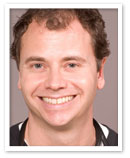CONCURRENT SESSIONS
Friday, June 14th, 2013 - 1:30 pm – 3:30 pm
MENTAL HEALTH
Chair: Dr. Valerie Taylor, MD, FRCPC
Quebec Room
2:30 pm
Update of Behavioural Therapies in Obesity
The obesity epidemic is perhaps best explained as the result of a missmatch between our ancient reward brain and our modern tasty food filled environment. The taste of hyperpalatable foods drives an opioid based emotional pleasure. Pavlov, over 100 years ago, demonstrated how our reward brain works by teaching dogs to salivate to the sound of a bell by pairing tasty food with a bell. Eventually the bell itself created salivation because the two had been paired so many times. This presentation will suggest that motivation to overeat is also a conditioned response resulting from the pairing of sets of cues with hyperpalatable foods. After conditioning has taken place, often over many years, exposure to these same "cues" drives a sensitized reward pathway leading to pathalogical levels of wanting often overwhelming an individuals capacity to withstand the urge to eat.
This presentation will demonstrate a novel perspective on behavioural weight managment treatment that combines classic evidence based methods with the rapidly evolving research of food reward. A reward pathway context is used to explain the behavioural weight managment principles of stimulus control, cognitive restructuring and self monitoring. A timeline based understanding of the "pathology" of overeating is used to explain how the phenomena of physical hunger, priming and negative emotions can "up modulate" wanting and how exercise can "down modulate" wanting. Critical therapy principles will be discussed such as cue avoidance, non expectancy, permission thinking and counter dialogue development.
Summary
Like Pavlov taught dogs to salivate to the sound of a bell, this presentation will suggest that motivation to overeat is conditioned by the pairing of sets of cues with hyperpalatable foods. This presentation will suggest a novel behavioral weight management strategy treatment that combines classic evidence based strategies with emerging reward theory principles.
Learning objective #1
Learn how the collision between the "ancient reward brain" and the pleasures of our modern "hyperpalatable food" environment conditions a motivation to overeat based on Pavlovian associative learning.
Learning objective #2
Learn the behavioural weight managment principles of stimulus control, cognitive restructuring and self monitoring can be explained and illuminated in the context of emerging reward theory.
Learning objective #3
Be able to identify critical subconscious elements to overeating such as associative learning, upwards modulation of wanting by negative emotions, physical hunger and priming, and downward modulation by exercise.
Learning objective #4
Be able to identify critical conscious elements to overeating such as non expectancy, permission thinking and counter dialogue development.
 |
Dr. David Macklin, MD, CCFPDr. Macklin is a physician trained in family practice at the University of Toronto. Dr. Macklin is the Director of the Weight Management Program at the downtown Toronto Medcan Clinic. Dr Macklin also runs the Weight Management Program at the Toronto Mount Sinai Hospital High Risk Pregnancy unit. Dr. Macklin has committed his career to the prevention and treatment of obesity and for over nine years has exclusively run multidisciplinary, evidence based weight management programs.
|